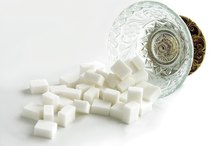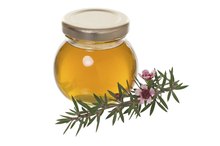Is Sucanat Healthy?
Sucanat -- a granulated sugar that takes its acronym-like name from the words “sugar cane natural” -- is often marketed as less refined and more nutritious than table sugar, or sucrose. Although it is minimally processed, Sucanat isn’t any healthier than other types of sugar.
Sucanat vs. Sugar
Sucanat is made by heating sugar cane juice into a rich syrup that’s then cooled and crumbled into dry granules. Whereas the conventional refining process strips sugar cane of its molasses to create traditional white sugar, Sucanat retains its natural molasses, which is what gives the sweetener its dark brown color and rich flavor.
Nutrient Retention
Nutritional Value of Dark vs. Light Agave Nectar
Learn More
Because molasses is the most nutritious part of sugar cane, Sucanat contains vitamins and minerals that are otherwise absent from more refined sugars; one teaspoon of the sweetener has 15 calories and supplies trace amounts of potassium, iron, calcium and vitamin B-6. While regular sugar has about the same number of calories, it provides no additional nutrients.
Potential Health Risks
You would, however, have to eat relatively large quantities of Sucanat to get substantial amounts of beneficial nutrients. As the American Heart Association points out, consuming too many added sugars -- whether in the form of Sucanat or any other nutritive sweetener -- can lead to obesity, heart disease, diabetes and other chronic health conditions.
Related Articles
References
Writer Bio
Based just outside Chicago, Meg Campbell has worked in the fitness industry since 1997. She’s been writing health-related articles since 2010, focusing primarily on diet and nutrition. Campbell divides her time between her hometown and Buenos Aires, Argentina.









